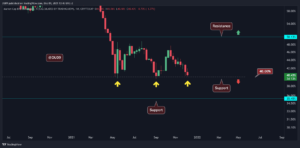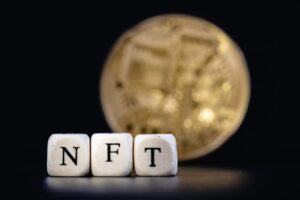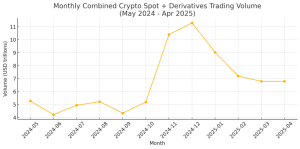According to reports, savings banks (Sparkasse) in Germany are developing a crypto project which will allow their customers to trade in cryptocurrencies directly through their checking accounts.
Crypto Trading Without KYC
The German Savings Banks Association, which includes over 400 savings banks across the country, is proposing a digital wallet option accessible directly through savings accounts. The IT service provider S-Payment is preparing the concept to be presented to the committees by early 2022. If approved, the project will allow bank customers to directly buy cryptos like BTC and ETH. This means that customers would not have to undergo lengthy and tedious KYC processes to join a crypto trading exchange. Instead, they can conduct their crypto activities directly through their Sparkasse checking accounts. Additionally, the Sparkasse legitimacy associated with a volatile asset class like cryptocurrency would attract financially conservative German customers.
Banks Eager To Launch Crypto Wallet
If the committees approve the pilot, a digital wallet sponsored by the banks can be rolled out by the end of next year. Individual savings banks would be in charge of commencing all related pilot projects. Even if the project is greenlit collectively, each of the 370 savings banks will be able to take the final decision to offer crypto services to customers or not. However, most banks are already highly interested in the project.
With around 50 million customers, the savings banks are the market leaders among German financial institutions. If and when the digital wallet is launched, this entire customer base will be eligible to trade in crypto and bring in a new economic dawn for the European banking landscape as a whole. Many newer financial institutions and organizations like PayPal have started offering crypto services to customers worldwide. However, this will be the first instance of a traditional financial institution of this stature venturing into the world of crypto.
Crypto As Hedge Against Inflation
The launch of the crypto services pilot program can be interpreted as Germany trying to provide its citizens with a hedge against the rising global inflation. The president of the German Savings Bank Association, Helmut Schleweis, has pointed out the erosion of wealth happening due to the ‘toxic mix’ of rising prices and low-interest rates on investments. With cryptocurrencies like BTC slowly emerging as a solid hedge against inflation, the pilot project could witness great economic upheaval for Germany in 2022.
Disclaimer: This article is provided for informational purposes only. It is not offered or intended to be used as legal, tax, investment, financial, or other advice.






















